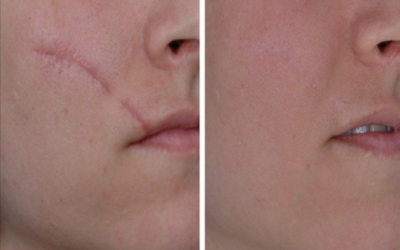
- Home
- About
- Services
- Laser Photo Facials
- Hair Transplantation (FUT)
- Laser Hair Removal
- Laser For Birthmarks
- Chemical Peels
- Acne, Tattoo Removal
- Acne Surgeries
- Dermaroller
- Dermal Fillers
- Fractional CO2 Laser
- Scar Rejuvenation
- Non Surgical Face Lift
- Nail Surgeries
- Botox (wrinkles, Brow Lift)
- Mesotherapy (for Hairloss )
- Radio Frequency Surgeries
- Mole Excision, Ear Piercing
- Meso Lipo (for Double Chin)
- Vitiligo(white Patch) Surgeries
- Micro Dermabrasion (Skin Polishing)
- Video Gallery
- Testimonials
- Blog
- Contact Us
Scar Rejuvenation

Although scars are a natural part of the skin’s healing method, they will cause pain, inconvenience, and self-consciousness. Most small scars can become nearly invisible if given enough time to heal, but for scars that are massive, thick, indented, or raised, scar treatment is available to cut back their look. Laser scar removal is an excellent choice, as are alternative cosmetic treatments such as microdermabrasion, chemical peels, and fat transfer therapy.
Causes of Scars
Scarring can result from nearly anything that damages the skin, from chicken pox to sports injuries and surgery. The more severely the skin is damaged, the longer can take to heal and also the more likely it is that a noticeable scar will develop. Fortunately, most scars are exceptionally treatable. The kind of scar treatment your dermatologist recommends can depend on the cause of the scar.
A common cause of facial scarring is simple teen-age or adult acne. Though these scars persist long when the acne has subsided, they will often be reduced by using one or a combination of acne scare treatments methods.
Scar Removal Treatment
A qualified dermatologist will assist you decide that scar removal treatment is correct for you. Though complete scar removal isn’t possible, most scars is considerably improved in look through one or more cosmetic techniques, including microdermabrasion, chemical peels, collagen injection and fat transfer procedures. Microdermabrasion and chemicals peels are ablative procedures that involve the removal of regeneration of the top layer of skin; microdermabrasion is mostly less invasive in comparison to chemical peels. Injections of collagen, fat, or dermal fillers like Juvederm or Perlane is used to fill in the depression left by a scar, minimizing it look.
For severe scarring, surgery is used to minimize the scar’s look. However, surgery will create new scars and is usually only appropriate for scars that are very wide, long, or otherwise prominent.
Laser Scar Removal
Laser scar removal is another excellent choice for minimizing the appearance of scars caused by acne, surgery, or alternative factors. Using a high-energy light, your dermatologist will remove or reshape areas of the skin that are affected by scar tissue. There are many different types of laser scar removal available, every optimally suited to a specific kind of scar. Raised and reddened scars may be treated using a pulsed dye laser, while acne scares are best treated using laser skin resurfacing. Areas of hyperpigmentation (dark spots) can be treated with IPL photofacials and chemical peels.